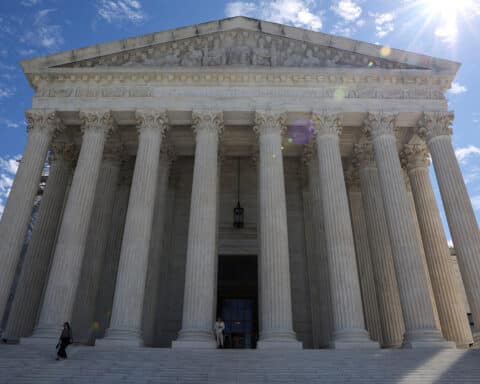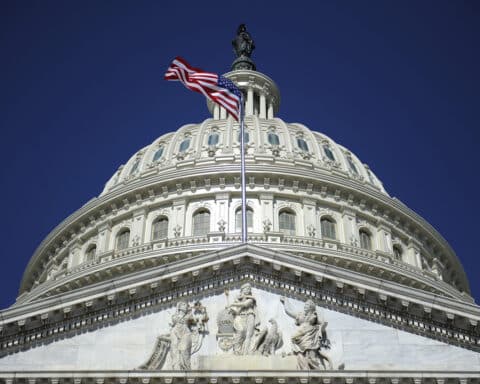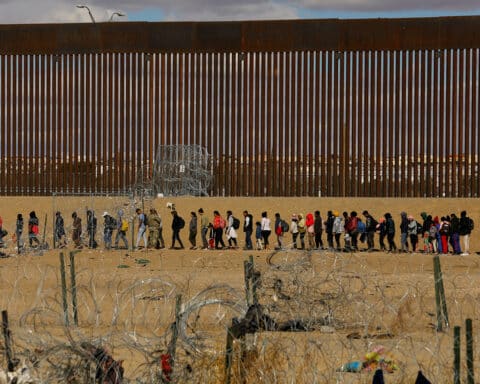For the second time in two years, the Supreme Court is in search of a new justice. In April 2017, conservative justice Neil Gorsuch was confirmed. Now, with the retirement of Justice Anthony Kennedy, a new confirmation process soon will be under way. And it’s not going to be pretty.
What type of judge might those of us who prioritize issues and concerns of faith, and who seek to influence the culture accordingly, find acceptable?
History tells us that it is not enough simply to put forward or support a Catholic justice. We know that religious affiliation matters little on the court and that many Catholics have voted against the Church on major issues. This is one reason why the Kennedy replacement is so important. Viewed as a conservative Catholic at the time of his appointment by Ronald Reagan, he quickly became the swing vote who built his legacy by siding with liberal justices on some of the nation’s most provocative issues: abortion and same-sex marriage. Swept up in the progressive tide of these cultural issues, he also propelled them forward, solidifying precedent-setting decisions in Casey v. Planned Parenthood (1992) and Obergefell v. Hodges (2015).
With Kennedy gone, Catholics will be praying for a judge in a different kind of mold. Our belief in the dignity of life from conception to natural death means we need a justice who values life and human dignity, and who believes the Constitution upholds this right to life. This is essential not only for the abortion issue but also for those concerning physician-assisted suicide, the death penalty and other attacks against the human person that perpetuate our culture of death. We need a justice who will work vigorously to uphold and protect our nation’s fundamental right to life and who will make it a priority to protect those most vulnerable lives, the unborn.
But it’s not just abortion that’s at stake. With the legalization of same-sex marriage in Obergefell now the law of the land, it will be essential to have a court convinced of the necessity of protecting religious liberty. As those who insist that marriage means a lifetime union between one man and one woman are increasingly cast by our culture as bigoted or as religious zealots, the Church — and all those wishing to live their faith in the public square, as is their constitutional right — will need to be supported. Religious freedom protections also allow Catholics to contribute productively to other areas of society. As Archbishop Joseph E. Kurtz of Louisville, chair of the U.S. Conference of Catholic Bishops’ Committee for Religious Liberty, said recently, “Religious freedom allows the space for people of faith to serve others in God’s love in ministries like education, adoption and foster care, health care, and migration and refugee services.”
A larger point is worth noting in this conversation: As a Church, we cannot expect the Supreme Court to lead the charge where culture is concerned. As Notre Dame’s Richard Garnett points out in this week’s story on Page 4, even if Roe v. Wade were overturned and the precedents surrounding Casey were dismissed, the issue of abortion is not resolved. Catholics must continue to evangelize the culture, explaining the truth of the teachings of the Church and living them out as best we can in our everyday lives.
Which leads to the final point: It’s hard to imagine the political scene getting more vitriolic than it already is, but it undoubtedly will. As we look toward a contentious confirmation process in the fall, Catholics should strive to engage in productive conversation that upholds the dignity of all, even those with whom we may disagree.
OSV Editorial Board: Don Clemmer, Gretchen R. Crowe, Scott Richert, York Young





